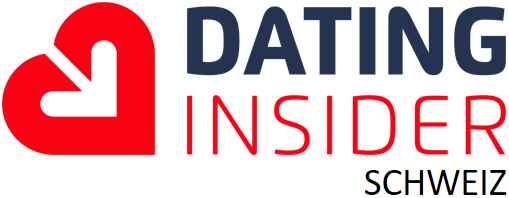Schweizer Singlebörsen im Vergleich: Partner fürs Leben oder lieber erstmal One-Night Stands?
Wer nach der besten Dating App sucht, sollte sich zuvor darüber Gedanken machen, was eigentlich die Zielsetzung der Partnersuche per App ist.
Die einen Suchen nach einem Partner fürs Leben, die anderen möchten erst einmal etwas Unverbindliches.
Warum ist das so wichtig?
Die Erfahrung zeigt, dass es keine gute Idee ist, diese beiden sehr unterschiedlichen Ziele zu vermischen.
Menschen die nach der grossen Liebe suchen, fühlen sich von unqualifizierten Sexanfragen eher belästigt. Während man sagen muss, dass Singles die nur nach Sextreffen suchen, definitiv besser dran sind, echte Sex Apps zu nutzen, als Apps wo das Ziel nicht vorher klar ist.
An dieser Stelle kommt Ihnen die langjährige Erfahrung von Dating Insider zu Gute. Wir zeigen Ihnen, mit welcher App Sie in der jeweiligen Kategorie die grössten Erfolgschancen haben.
Darum sind Singlebörsen Apps so beliebt
Online Dating ist in der Mitte unserer Gesellschaft angekommen. Für die jüngere Generation ist das Kennenlernen mit Hilfe einer App das neue „normal“, während das Kennenlernen in der realen Welt, z.B. auf der Strasse, schon fast als ungewöhnlich gilt.
Warum ist das so?
Mittlerweile sind wir es gewohnt viele komplexen und weniger komplexen Dinge des Alltags per App zu meistern. Warum sollte man also nicht auch die Liebe in der Schweiz mit Hilfe einer App finden können?
Die Anmeldung in einer CH Dating App ist innerhalb von wenigen Minuten erledigt und man kann sofort mit dem Suchen und Finden der Liebe anfangen.
Das Beste ist…
Innerhalb von wenigen Minuten haben Sie Zugriff auf eine Vielfalt von Singles in Ihrer Nähe. So schnell mit so vielen Menschen gleichzeitig zu flirten, würden Sie im realen Leben gar nicht schaffen.
Das heisst Sie können sehr effizient vorgehen und können im ersten Schritt alles bequem von zu Hause aus erledigen. Für Sie heisst das, mehr Zeit für die Karriere, für Ihre Hobbys und für Ihre Freunde.
Und Hand aufs Herz…
Sollten Sie aktuell nicht nach dem Partner fürs Leben suchen, sondern nach einem unverfänglichen Abenteuer, ist die Online-Variante ebenfalls viel praktischer.
Wenn Sie gezielt auf eine Casual Dating App setzen, so heisst die Sparte der Apps, die erotische Kontakte vermitteln, wissen Sie sofort, dass die dort angemeldeten Kontakte nach unverbindlichen Treffen Ausschau halten.
Darüber hinaus können Sie gezielt nach bestimmten Vorlieben suchen und Gleichgesinnte finden.
In unserem Singlebörsen Vergleich erfahren Sie selbstverständlich, welche Casual Dating Apps gerade besonders angesagt sind und wo die Chancen auf ein schnelles Sextreffen am höchsten sind.
Wenn Sie den Partner fürs Leben suchen, zeigt Ihnen Dating Insider die Seiten und Apps, wo sich die meisten Singles in Deutschland ineinander verlieben.
So einfach kann die schöne, neue Online Dating Welt sein.
Singlebörsen CH Vergleich lohnt sich
Genauso wie beim Vergleich von Versicherungen und Mobilfunktarifen, macht auch ein Vergleich von Singlebörsen viel Sinn.
Die Vielfalt der im deutschen Markt angebotenen Apps ist gross. Nicht alle Dating-Seiten liefern das, was sie versprechen. Die Qualitätsunterschiede sind gross.
Im Gegensatz zum Vergleich von Strom oder Versicherung, geht es bei einem Singlebörsen Vergleich gar nicht so um die Kosten, als um viele andere qualitative Kriterien, die auf den ersten Blick nicht ersichtlich sind.
Das Dating Insider Team beschäftigt sich bereits seit Jahren mit Dating Apps und Singlebörsen aller Art und kann somit auf viele Erfahrungswerte und Nutzerbewertungen zurückgreifen.
Hier unsere beliebtesten Portale 2024 im Vergleich:
Sehr viele Frauen auf Sex-Suche
Ein hoher Frauenanteil und viele aktive Nutzer machen C-date zum besten Sexdating Portal im deutschsprachigen Raum.
Zu C-Date >>
Erotische Dates mit Niveau
The Casual Lounge ist ein besonders beliebtes Schweizer Casual Dating Portal und deshalb die richtige Plattform für niveauvolle Frauen und Männer mit hohen Ansprüchen.
Zu The Casual Lounge >>
Heisse Amateur Frauen aus der direkten Nachbarschaft. Wer Lust hat Frauen aus der Nachbarschaft zu treffen und mit ihnen via Live Cam zu flirten, ist hier 100% richtig.
Zu AmateurCommunity CH >>
Seitensprungtreff24.ch ist ein besonders beliebtes Schweizer Casual Dating Portal und deshalb die richtige Plattform für alle, die es auf unkomplizierte Sextreffen anlegen.
Zu Seitensprungtreff24.ch >>
Bei Fremdgehen69 handelt es sich um ein sehr beliebtes und stark frequentiertes Sex Dating Portal
Zu Fremdgehen69 >>
Wer schnell mit verschiedenen Menschen ins Gespräch kommen möchte, ist hier richtig aufgehoben.
Zu BeNaughty >>
Secret.de steht für diskreten, kostenlosen Sex und Leidenschaft.
Zu Secret.ch >>
Lustagenten ist ein Portal für private Frauen und Männer, die auf der Suche nach sexuellen Abenteuern sind.
Zu Lustagenten.ch >>
Interessieren Sie sich für junge und aufreizende Girls in Ihrer Umgebung? Dann ist NewHoney das Richtige für Ihre Ansprüche.
Zu New Honey >>
Ein Experte, der bereits viele Dating Apps von innen gesehen hat, kann sehr schnell beurteilen, welche Features bei der digitalen Partnersuche wirklich wichtig sind. Welches Vorgehen beim Kündigen einer Singlebörse als fair zu betrachten sind und zu guter Letzt auch final beurteilen,
wie gut das Preis-Leistungs-Verhältnis bei einer Singlebörse ist.
Wichtigste Kriterien beim Singlebörsen Vergleich
Um die für Sie besten Singlebörsen und Dating Apps zu finden, orientiert sich Dating Insider stets an den für Nutzer wichtigsten Kriterien bei der Nutzung solcher Dienste.
In den Vergleichstabellen finden Sie alle für einen ordentlichen Vergleich relevanten Punkte zusammengefasst und übersichtlich dargestellt. Sie sehen auch die Vor- und Nachteile der jeweiligen Singlebörsen Apps, die die Business Insider Redaktion ermittelt hat.
Erfahrungen zeigen, dass die Grösse einer Dating App zu den wichtigsten Erfolgsfaktoren im Online Dating zählt.
Warum ist das so?
Das ist ganz einfach. Je mehr Nutzer aus der Schweiz eine Dating App hat, desto höher die Chance, dass Sie auf jemanden Treffen, der gut zu Ihnen passt oder die gleichen erotischen Vorlieben hat.
Aus diesem Grund analysiert Dating Insider alle relevanten Dating Apps und Singlebörsen im Hinblick auf die Nutzerzahlen und gewichtet diese entsprechend in den Vergleichstabellen.
Was ist bei einem gutem Singlebörsen Vergleich noch wichtig?
Weiterhin ist es wichtig zu verstehen, wie effizient man mit andern Singles innerhalb der App kommunizieren kann. Effizienz in der Kommunikation fängt bereits mit dem Matching der zueinander passenden Mitglieder an und reicht bis hin zu den Kommunikationsfeatures.
Warum ist das Matching so wichtig?
Wenn Sie davon ausgehen, dass eine gute Singlebörse möglichst viele Nutzer hat, werden Sie schnell feststellen, dass es eine Herausforderung sein kann aus der Fülle unterschiedlicher Nutzer diejenigen zu finden, die für Sie interessant sind und zu Ihnen passen.
Intelligente Matchingalgorithmen helfen hierbei die Singles zu finden, die in dem Fall der Suche nach einer Beziehung, die höchste Kompatibilität zeigen. Falls es kein automatisches Matching gibt, sind die Suchfunktionen einer App ausschlaggebend.
Nach dem Matching kommt die Kommunikation.
Hierbei achtet Dating Insider darauf, wie leicht es ist, mit anderen Singles in Kontakt zu kommen. Auch hier gibt es grosse Unterschiede. Manche Apps machen es sehr einfach den ersten Kontakt zu initiieren (z.B. durch spielerische Elemente, virtuelle Geschenke oder vorgefertigte Fragen), andere wiederum gehen den klassischen Weg und lassen Sie komplett kreativ sein.
Diese und eine ganze Reihe anderer Kriterien werden von der Dating Insider Redaktion bewertet, abgewogen und in Form einer Beurteilung inklusiver alle Vor- und Nachteile Ihnen präsentiert.
Das Dating Insider Team wünscht Ihnen viel Erfolg bei der Online Partnersuche in der Schweiz.
Sollten Sie Fragen oder eigene Erfahrungen zu den einzelnen CH Dating Apps haben und diese mit unseren Lesern teilen wollen, zögern Sie nicht, uns per E-Mail zu kontaktieren. Sind Sie interessiert an den Ergebnissen für Deutschland? Hier finden Sie unsere Partnerseite für Tipps rund ums Onlinedating in Deutschland.





























